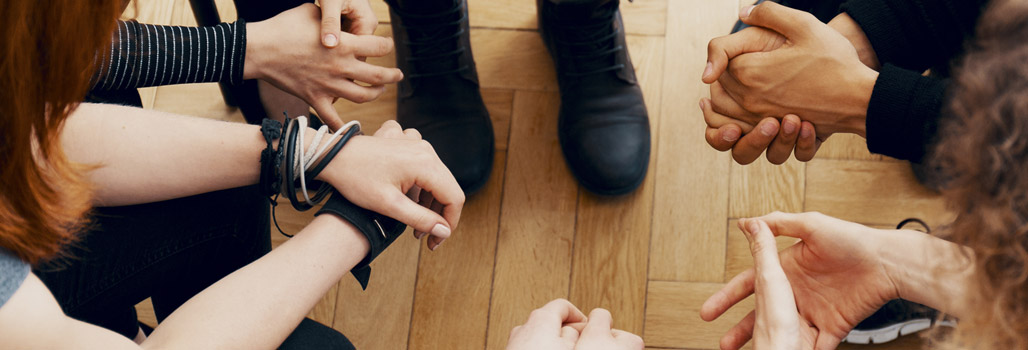Drug and alcohol addiction are hard to address when they impact you or someone close to you. Even though addiction is a disease, it is manageable when evidence-based rehabilitation approaches are explored. Long term recovery is possible.
In this guide we explore how an holistic rehabilitation program can encourage you or someone you care about to start and sustain addiction recovery.
What is Addiction Rehab (Rehabilitation)?
When we talk about addiction ‘rehabilitation’, we refer to the combination of medical and psychotherapeutic treatments used to manage dependencies on illegal substances, prescription medications and alcohol.
Rehab approaches are more successful when they are personalized to your lifestyle needs, and may include inpatient programs, outpatient programs, medically-supervised detoxes and aftercare support programs.

Facts & Statistics about Addiction in Siskiyou
Prevalence of Substance Use Disorder, by Drug Type
(IN THOUSANDS)
- 2,7578.5%Any Substance
- 2,0886.4%Alcohol
- 1,0683.3%Ilicit Drugs
- 2060.6%Pain Medication
Drug- and Alcohol-Induced Deaths by Age Group, California, 2016
- Alcohol-Induced
- Drug-Induced
- 18 to 250.5
- 9.6
- 26 to 354.3
- 13.9
- 36 to 6424.2
- 22.9
- 65+23.7
- 9.4
Drug Use, by Selected Type and Age Group California, 2015 to 2016
- 12 to 17
- 18 to 25
- 26+
- Marijuana*13.2%
- 34.0%
- 13.5%
- Misuse of Pain Medications3.5%
- 8.0%
- 4.3%
- Cocaine0.8%
- 7.2%
- 1.8%
- Heroin0%
- 0.4%
- 0.2%
What are the treatment options available in Siskiyou?
A consolidated treatment approach is the most successful way to tackle the root causes of drug or alcohol addictions. Symptoms of addiction should be treated but learning new life skills encourages you to face the reasons that caused your drug or alcohol addiction.

Private Residential Programs
Remaining at a addiction center and having all of your treatments there is what’s known as a residential rehab program. Its major benefit is that you will continuously receive integrated treatment and support day by day. By moving out of your comfort zone and into a treatment facility, you can protect yourself from the those stressful triggers that culminated in you developing a drug addiction.
You are less susceptible to relapse when you finish your addiction treatment program in a secure facility where the environment is supportive. Clients who struggle with dual diagnosis, co-occurring illnesses and extreme substance dependencies are recommended to enroll for an inpatient treatment program.
A residential addiction treatment program will support you in getting sober, but note that maintaining sobriety will require persistent effort as the first year of recovery can be challenging. After your inpatient program, you need to consider what you’d like from your new life, as you work towards becoming more independent.
Do You Need Help?
Our addiction advisers are here to help you.

Sober Living Programs
Sober living programs help people in recovery build further control over their lives, with support and some guidance. Sober living programs include:
- A house manager to check in with you on a daily basis
- Develop boundaries for positive behaviors in recovery
- Friendship and support from those who are there for the same reasons as you.
Outpatient Programs
Outpatient rehab programs provide greater flexibility as you can continue with work commitments and live at home, but you come to the rehab facility for your treatments.
Outpatient programs assist you with:
- Education around substance abuse
- Counseling services and therapy through group support or one-on-one sessions – The minimum duration of an outpatient program is three months and it could be extended to longer than a year, this is depending on your own needs.
Detox Only Programs
Participating in a drug or alcohol detoxification program is the first step in rehab as it addresses your physical dependency by eliminating substances from your body. As your body returns to normal function without substances in your system, you typically experience the symptoms of withdrawal.
This process of detoxification marks the beginning of your rehab journey, following which you will begin to overcome the underlining causes of your psychological dependence to avoid a repeat of those same cycles. You may experience some cravings and withdrawal symptoms for a few weeks after your detox program has ended. In rehabilitative therapy you will identify the coping skills for long-term recovery, so that you can avoid relapse in the future.
Paying for Private Treatment
Private treatment needs to be paid out of pocket or claimed in accordance with your healthcare policy. A large percentage of health insurance providers offer cover for some rehab, which includes medical detox, the rehab program, medical supplies and relapse prevention programs. Your provider along with their terms will dictate how much cover you can claim for.
We recommend that you identify how much cover you are entitled to before you register for a treatment program. Our Verify Your Insurance page will help you to determine the amount of cover you are eligible for.
If you choose not to claim against your insurance policy, you have to pay for your treatment program with your own funds. Some facilities may provide payment plans for those who find the costs unaffordable upfront.
State Funded Programs
If you want to address your substance or alcohol dependency but you are unable to pay for private treatment, you should consider a state-funded rehabilitation program.
These programs make use of government funds from state budgets, Medicaid and federal government to assist recovery by offering:
- Medically-managed drug or alcohol detox
- Treatment services and aftercare support

State-funded rehabilitation programs are important to individuals who are unable to get private health insurance or who live in low income households. When applying you will need:
- Proof of low income
- Proof of where you live
- Your medical details regarding your drug or alcohol misuse
- Proof of legal US residence
More information about the application process can be found on https://www.grants.gov/
This booklet contains contact details for your state agency.
The following state-funded addiction rehab programs are available in Siskiyou:
Karuk Tribe Health and Human Services
1515 South Oregon Street, Suite C, Yreka, CA 96097
530-841-3141
www.karuk.usKOLPIA Counseling Services Inc
611 Siskyou Boulevard, Suite 8 , Ashland, OR 97520
541-482-1718
https://kolpiacounseling.com/County of Siskiyou Siskiyou County Behavioral Health
1107 Ream Avenue, Mount Shasta, CA 96067
530-918-7200
http://www.co.siskiyou.ca.us/behavioralhealth
Maintaining Addiction Recovery in Siskiyou
You may find some initial challenges when first leaving treatment. At rehab you were in a professionally supported, safe environment. When you depart rehab there will be some new challenges that you will have to learn to cope with. If you experienced a severe dependency and have not developed a social structure to return to when you leave rehab, you may find long term recovery more of a challenge. Without the relevant support and aftercare to guide you in your new life, relapse is a real possibility.
The following AA/NA meetings are available in Siskiyou:
AA - How It Works Group BB Study
In person, Big Book, Closed and Outdoor Meeting:
161 E Lincoln Ave., Weed, CA 96094
Monday: 12:00 NOON
https://aanorcal.org/meetings/AA - Sunday Night Chair w/Participation Meeting
In person, Discussion and Open: 534 Everitt Memorial Hwy., Mt Shasta, CA 96067
Sunday: 4:30 pm
https://aanorcal.org/meetings/AA - 3-In-One Group 12X12
In person, Big Book and Open: 701 Lassen Ln., Mt Shasta, CA 96067
Wednesday: 12:00 NOON
https://aanorcal.org/meetings/
Aftercare & Alumni Programs
An aftercare program is a resource to support your recovery when you go back to your daily life. By taking part in aftercare support, you can lessen the risk of relapse which impacts as many as 60% of individuals who have recently completed a program. It is an essential service provided by most treatment centres.
As you approach the completion of your rehab program, you will need to consider the therapies and services that will help support long-term recovery, and we will create an aftercare program to guide you. After finishing your rehab treatment program you will be eligible for joining an alumni community program so you can remain close to staff and others in recovery.
This fantastic network allows you access to our Alumni events, as well as ongoing support and encouragement from other former clients also in recovery. We encourage you to consider supporting other members who are active in your network if you want to.
Support Groups (Fellowship Meetings)
Attending in support groups is vital because companionship will encourage long-lasting addiction recovery. By joining a group like Narcotics Anonymous or Alcoholics Anonymous, you will continue the 12 steps by attending near-by meetings for ongoing support.
At local meetings, you can share and listen to the journeys of others. Many individuals in recovery attend nearby meetings to assist them in their recovery journey. Support groups provide them with the important tools to maintain sobriety, allowing them to take responsibility for their own journey in recovery.

Support for Families & Children Affected by Addiction
Addiction causes pain for everyone living in the household to some extent. Support and guidance is just as important for the family members as it is for the person with the substance use disorder.
Participating in a family support group can help you to manage the situation better, as well as encourage you in providing greater support to the individual with the dependency. Get help and guidance for the Family with the following support groups:
- Parents of Addicted Loved Ones
- SMART Recovery Family & Friends
- NAMI Family Support Groups
- Al-Anon
- Families Anonymous
- Alateen
- Nar-Anon










